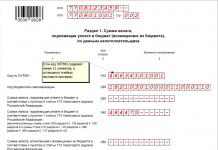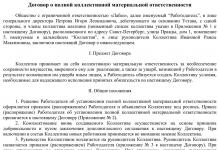THIS ARTICLE IS A CHAPTER OF THE BOOK AVAR LABOR LAW OF RUSSIA
The new law makes major changes to Russian labor law. Now there is a legal opportunity to organize remote work for an employee at his home. Previously, the Labor Code provided for the so-called “work from home”, but the conditions for its application were very limited and in fact could not be applied in a situation where an employee was hired to work remotely at home or in another place remote from the office. The old rules on home work, which are still in force, regulate the situation in which a worker performs duties related to the production of consumer and craft goods from materials and using tools of the employer or purchased with the employee's funds. Thus, these rules could not be applied to regulate the labor of various categories of workers. In Russia, there was an urgent need to regulate remote work for such categories of workers as IT specialists, sales representatives, consultants, translators, etc. The changes provide an opportunity to legally consolidate relations with such employees.
According to the new law, remote work is the performance of work duties outside the location of the employer, its branch, representative office or other place under the control of the employer. The new law indicates the need to organize communication through the use of information and telecommunication networks, including the Internet, to perform work and interact with the employer. An important provision of the new law is that the presence of a remote worker does not entail the employer’s obligation to register a separate structural unit for these purposes.
Regulations on remote work provide opportunities for more flexible labor regulation. For example, they make it possible to provide special conditions for termination of an employment contract.
Below we will describe in more detail the innovations regarding remote work and briefly name the similar modes of working from home and shift work, as well as the opportunity to conclude civil contracts instead of employment contracts.
Remote work
The President of the Russian Federation signed the Federal Law on Amendments to the Labor Code, introducing a new chapter on remote work. It came into force on April 8, 2013.
Remote work means the performance of work duties outside the location of the employer, its branch, representative office or other place under the control of the employer.
A necessary condition for remote work is the use of information and telecommunication networks, including the Internet, to perform work and interact with the employer.
An important point of the new law is the provision that the presence of a remote worker does not entail the employer’s obligation to register a separate structural unit for these purposes. This conclusion can be drawn from the legal provision that a separate structural unit must be registered with the tax authorities if the employer organizes stationary workplaces in a geographical area remote from its location (Articles 81.1 and 11.2 of the Tax Code of the Russian Federation) at a time when under For a remote worker, a stationary workplace is not organized. The regulation of the work of remote workers has some peculiarities. In the interaction between a remote worker or candidate for remote work and the employer when exchanging electronic documents, enhanced qualified electronic signatures are used. However, this provision becomes mandatory only by agreement of the parties. If such an agreement has not been reached, the parties may use paper documents (Article 312.1 of the Labor Code of the Russian Federation).
When concluding a contract, the provision for remote work must be included in the employment contract with the employee. The contract may provide for an additional condition regarding the duty of the remote worker to use equipment, software and hardware, information security tools and other means provided or recommended by the employer when performing his duties.
The employment contract must provide for the following conditions:
Procedures and conditions for the use of equipment, software and hardware, information security tools and other means provided or recommended by the employer;
Procedures and conditions for reporting on work performed;
Conditions for compensation for the use of equipment, software and hardware, information security tools and other means belonging to the employee;
Rules for compensation of other costs that an employee incurs in connection with remote work.
The employer's obligations to ensure safe conditions and labor protection for remote workers extend to a limited extent. Unless otherwise provided by the employment contract on remote work, the working hours and rest hours of the remote worker are established by him at his own discretion.
An employment contract and agreements to change the terms of an employment contract can be concluded by exchanging electronic documents. In this case, the location of the employer is indicated as the place of concluding an employment contract on remote work, agreements on changing the terms of the employment contract on remote work. The employer, no later than three calendar days from the date of conclusion of the employment contract, is obliged to send the remote worker by registered mail with notification a duly executed copy of this employment contract on paper. Sending documents presented when concluding an employment contract in accordance with Art. 65 of the Labor Code of the Russian Federation is carried out by sending copies of them by electronic documents. However, at the request of the employer, the applicant is obliged to send him by registered mail with notification notarized copies of the specified documents on paper.
An employee's familiarization with documents related to work, including local regulations and orders of the employer provided for by the Labor Code of the Russian Federation, can occur through the exchange of electronic documents. In addition, in cases where, in accordance with the Labor Code of the Russian Federation, an employee has the right or obligation to contact the employer with a statement, provide the employer with explanations or other information, a remote worker can do this in the form of an electronic document. By agreement of the parties, information about remote work is not entered into the work book, and the work book is not issued to a person who gets a job for the first time.
The parties also have the right to conclude an employment contract on remote work without the use of electronic documents in the traditional manner. In this case, the contract indicates the place of actual conclusion of the contract. The applicant submits the original documents presented when concluding an employment contract. In addition, in this case, the employer retains the obligation to issue a certificate of state pension insurance for a remote worker applying for a job for the first time. The employee also has the right to demand proper registration of the work book.
Remote work in some cases requires proper execution of written documents, which are sent by registered mail with notification. The employer, even if an employment contract is concluded through the exchange of electronic documents, is obliged to send the remote worker a duly executed copy of this employment contract on paper. To provide mandatory insurance coverage for compulsory social insurance in case of temporary disability and in connection with maternity, the remote worker sends the originals of the necessary documents to the employer.
Upon termination of an employment contract, even if familiarization with the dismissal order is provided in the form of an electronic document, the employer on the day of termination of this employment contract is obliged to send the remote worker a duly executed copy of the said order on paper. In other cases, the use of paper media is not mandatory.
The parties may provide in an employment contract for remote work (as when working from home) special conditions for termination of the employment contract, not limited to the relevant list of the Labor Code of the Russian Federation.
Home work In addition to new provisions on remote work, the Labor Code contains rules on so-called “home work” (Chapter 49 of the Labor Code of the Russian Federation). However, the conditions for its application are quite limited and cannot actually be applied in a situation where an employee is hired to work remotely at home or in another place remote from the office. The rules on home work, which remain in force, govern the situation in which a worker performs duties related to the production of consumer and craft goods from materials and using tools of the employer or purchased with the employee's funds. Thus, these rules could not be applied to regulate the labor of various categories of workers.
Home work is subject to general rules; However, there are some peculiarities. A homeworker can involve his family members in work, but no labor relations arise between them and the “employer” (Article 310 of the Labor Code of the Russian Federation).
In a work-from-home employment contract, the employer and employee agree on which party will provide the equipment and materials needed for the job. If a homeworker uses his own materials or equipment, the employer is obliged to pay compensation for their wear and tear.
An employment contract on home work must contain the procedure for paying the home worker for work performed.
When working from home, safety and health regulations must be followed.
The norms of legislation on home work provide for the need to specifically establish in the contract the grounds for its termination (Article 312 of the Labor Code of the Russian Federation).
Shift work
Shift work is a form of implementation of the labor process when workers are located at a considerable distance from their place of permanent residence and, due to geographical conditions, their daily return to their place of residence cannot be ensured (Chapter 47 of the Labor Code of the Russian Federation). This form of labor is used in cases where work is carried out in sparsely populated areas with difficult natural conditions. Shift workers must return home at least once a month, and in exceptional cases - once every three months (Article 299 of the Labor Code of the Russian Federation).
With this form of labor, working hours, days, rest time, etc. are taken into account in a special order, which is called summarized recording of working time (Article 300 of the Labor Code of the Russian Federation). When working on a rotational basis, all time spent at a remote workplace is taken into account. In any case, the total working time must not exceed the normal number of working hours.
Civil legal regulation of labor
An individual in Russia can provide services and perform work both under an employment contract, in which case relations with the employer are regulated by labor law, and under a civil contract in accordance with civil law.
The concept of a civil contract boils down to an agreement under which a company uses the services of an individual without the intention of entering into an employment contract with him. The main difference between a civil law contract and an employment contract is that the employee does not have the right to enjoy the guarantees provided for by labor law (protection against unilateral refusal of the contract, rules on work outside working hours, payment of sick leave and vacations), and is not subject to internal labor regulations customer.
Civil contracts are used when a person is hired to work temporarily on a project or occasionally perform additional work that is not normally performed by the organization's employees. One of the most typical cases is the conclusion of a civil contract with freelance translators.
When concluding a civil contract, the parties are guided by the rules of civil law, which provide for equality of parties and freedom of contract. However, certain restrictions are imposed by imperative norms of Chapters 37 and 39 of the Civil Code of the Russian Federation. In particular, the parties are required to agree on the specific subject of the agreement, which must be spelled out in detail in such an agreement, indicating its scope and quality. In addition, it is necessary to indicate the date of completion of the work (for a contract for the provision of paid services) and the start and end date of the work (for a contract). A prerequisite is the determination of the contract price and the procedure for payment of remuneration.
In most cases, the main reason for concluding a civil contract is the desire of the parties to avoid the application of labor law standards. However, if a truly employment relationship has developed between the parties, and the employee carries out labor activities in accordance with the labor regulations and on the employer’s territory, then the employer bears the risk of the court reclassifying the civil contract into an employment contract in accordance with Art. 11 Labor Code of the Russian Federation. Currently, there is extensive judicial practice on the application of this article. As a rule, if there is evidence of an employment relationship, the court resolves such cases in favor of the employee.
When recharacterizing relations, courts take into account a set of criteria, among which the following can be highlighted:
1) Systematic re-conclusion of civil contracts or extension of their validity, for example, in the Resolution of the Federal Antimonopoly Service of the Moscow District of August 28, 2008 N KA-A40/7019-08 in case N A40-59304/07-90-332.
2) Subordination of the employee to the internal labor regulations, for example, in the Resolution of the Federal Antimonopoly Service of the Moscow District dated June 19, 2009 N KA-A40/5330-09 in case No. A40-66166/08-76-271 or the Resolution of the Federal Antimonopoly Service of the Moscow District dated November 13, 2008 N KA-A40/10488-08 in case No. A40-59261/07-14-314.
3) Dates and frequency of payment of remuneration, for example, in the Resolution of the Federal Antimonopoly Service of the Moscow District dated June 19, 2009 N KA-A40/5330-09 in case N A40-66166/08-76-271.
4) The connection between payment under the contract and the volume and frequency of work performed, for example, in the Resolution of the Federal Antimonopoly Service of the Moscow District dated June 19, 2009 N KA-A40/5330-09 in case N A40-66166/08-76-271.
Thus, despite the fact that civil contracts are not the basis for the emergence of labor relations, in some cases they are able to regulate the performance of work by an individual who acts as an equal and independent party to the contract.
Civil contracts can be concluded, among other things, with individual entrepreneurs. If such an entrepreneur provides services in accordance with his type of activity, the risk of reclassification of the contract into an employment contract is significantly reduced.
Vladimir Stepanov, Master of Laws, senior lawyer at DS Law
On April 19, 2013, Federal Law No. 60-FZ of April 5, 2013 “On Amendments to Certain Legislative Acts of the Russian Federation” (hereinafter referred to as the Federal Law) came into force, according to which the Labor Code of the Russian Federation (hereinafter referred to as the Labor Code of the Russian Federation) ) a new chapter 49.1 has been introduced, dedicated to the regulation of the labor of remote workers.
The federal law regulates the relationship that has developed in modern practice, when employers hire employees who work without being on the premises owned by the employers. If previously such employees were most often registered by employers as homeworkers, now the Labor Code of the Russian Federation has a separate chapter that provides for the specifics of regulating the labor of this category of workers.
General provisions on remote work
The federal law introduced the concept of remote work. According to Part 1 of Art. 312.1 of the Labor Code of the Russian Federation, remote work is the performance of a labor function specified in an employment contract outside the location of the employer, its branch, representative office, other separate structural unit (including those located in another area), outside a stationary workplace, territory or facility directly or indirectly under control employer, subject to the use of public information and telecommunication networks, including the Internet, to perform this job function and to carry out interaction between the employer and employee on issues related to its implementation.
From this definition, two main features of remote work can be identified. Firstly, such work is performed outside the location of the employer, its separate division, outside a stationary workplace, territory or facility directly or indirectly under the control of the employer. This feature distinguishes remote workers not only from workers working at the employer’s site (office), but also from homeworkers working at home, since the employee’s home can in this case be considered a place indirectly under the control of the employer. It is fair to say that remote workers, in principle, do not have a workplace in the legal sense of the word (the definition of a workplace is given in Article 209 of the Labor Code of the Russian Federation).
Secondly, the second sign of remote work is the use of public information and telecommunication networks (including the Internet) to perform work functions and interact with the employer. This feature can be considered secondary, since the use of public networks is typical for many types of work performed at the employer’s site.
Interaction between employer and remote worker
The federal law defines a new method for Russian labor law of interaction between the parties to an employment contract - the exchange of electronic documents. A prerequisite for such an exchange is the use of enhanced qualified electronic signatures by the remote worker (a person applying for remote work) and the employer. In the form of electronic document exchange, the following can be carried out: concluding an employment contract and changing its terms (Part 1 of Article 312.2 of the Labor Code of the Russian Federation), familiarizing the employee with the internal labor regulations, other local regulations, orders (instructions) of the employer, a collective agreement (Part. 5 Article 312.2 of the Labor Code of the Russian Federation, Part 5 of Article 312.1 of the Labor Code of the Russian Federation), presentation by the employee applying for work, the documents provided for in Art. 65 of the Labor Code of the Russian Federation (Part 3 of Article 312.2 of the Labor Code of the Russian Federation), provision by the employee of explanations or other information (Part 6 of Article 312.1 of the Labor Code of the Russian Federation).
Concluding an employment contract on remote work
Since the maintenance of personnel documentation in Russia is carried out in paper form, the Federal Law provides for the obligation of the parties to an agreement on remote work to provide copies of documents in paper form. If an employment contract on remote work is concluded by exchanging electronic documents, the employer is obliged no later than 3 calendar days from the date of conclusion of the employment contract to send the employee a copy of this employment contract on paper (Part 2 of Article 312.2 of the Labor Code of the Russian Federation). An employee who has provided the employer with the documents provided for in Art. 65 of the Labor Code of the Russian Federation, in electronic form, in turn, is obliged, at the request of the employer, to send him notarized copies of these documents on paper (Part 3 of Article 312.2 of the Labor Code of the Russian Federation).
The specifics of remote work determine the methods for obtaining an insurance certificate of state pension insurance and a work book for a remote worker. If an employment contract for remote work is concluded by exchanging electronic documents by a person entering into an employment contract for the first time, this person receives an insurance certificate of state pension insurance independently (Part 4 of Article 312.2 of the Labor Code of the Russian Federation). As for the work book of a remote worker, by agreement of the parties to the employment contract on remote work, information about such work may not be entered into the work book of the remote worker, and when concluding a work book for the first time, a work book for a remote worker may not be issued (in such cases, the length of service is confirmed by a copy of the work record). agreement - part 6 of article 312.2 of the Labor Code of the Russian Federation).
It should be noted that an important feature of the norms of the Labor Code of the Russian Federation on remote work is the provision of wider opportunities for the parties, compared to a classic employment contract, to determine its terms. In particular, the employment contract on remote work defines:
a) the procedure and timing for providing the remote worker with the necessary equipment, software and hardware, information security tools and other means;
b) the procedure and timing for remote workers to submit reports on work performed;
c) the amount, procedure and terms of payment of compensation for the use by a remote worker of equipment, software and hardware, information security tools and other means owned or leased by a remote worker (Part 1 of Article 312.3 of the Labor Code of the Russian Federation);
d) other terms of the employment contract for remote work, provided for by the Labor Code of the Russian Federation.
The federal law does not provide for any provisions regarding the conclusion of an employment contract for remote work for a certain period. Thus, an employment contract of this type can be fixed-term only if there are grounds provided for in Art. 59 Labor Code of the Russian Federation.
Occupational safety, working hours and rest time for remote workers
The peculiarities of remote work determine the specific application of labor protection standards to remote workers. The federal law has significantly reduced the list of employer responsibilities to ensure safe working conditions and labor protection. This list includes:
a) sanitary, medical and preventive services for workers in accordance with labor protection requirements, as well as delivery of workers who become ill at work to a medical organization in the event of the need to provide them with emergency medical care (paragraph 16, part 2, article 212 of the Labor Code RF);
b) compulsory social insurance of workers against accidents at work and occupational diseases (paragraph 19, part 2, article 212 of the Labor Code of the Russian Federation);
c) familiarization of workers with labor protection requirements (paragraph 20, part 2, article 212 of the Labor Code of the Russian Federation), including labor protection requirements when working with equipment and tools recommended or provided by the employer (part 2, article 312.3 of the Labor Code of the Russian Federation).
Since the remote worker is not under the direct control of the employer, he sets the working hours at his own discretion. This provision is dispositive, that is, the employment contract may provide otherwise (Part 1 of Article 312.4 of the Labor Code of the Russian Federation). At the same time, the provisions on working hours provided for in the contract should not limit the rights or reduce the level of guarantees of a remote worker in comparison with those established by labor legislation and other regulatory legal acts containing labor law norms; if such conditions are included in a collective agreement, agreement or employment contract, then they are not subject to application (Part 2 of Article 9 of the Labor Code of the Russian Federation). In particular, an employment contract for remote work may provide for an irregular working day, but this does not mean that a remote worker is obliged to systematically work outside the established working hours (for most workers this is 40 hours a week - Part 2 of Article 91 Labor Code of the Russian Federation).
The procedure for providing a remote worker with annual paid leave and other types of leave is determined by the employment contract on remote work in accordance with this Code and other acts containing labor law standards (Part 2 of Article 312.4 of the Labor Code of the Russian Federation).
Termination of an employment contract for remote work
Termination of an employment contract for remote work at the initiative of the employer is carried out on the grounds provided for in the employment contract (Part 1 of Article 312.5 of the Labor Code of the Russian Federation). Obviously, this provision must be interpreted broadly: termination of the contract for remote work is carried out at the initiative of the employer on the grounds provided for in Art. 81 of the Labor Code of the Russian Federation, as well as on the grounds provided for in such an employment contract. Again, contractual grounds must not be discriminatory. According to Art. 3 of the Labor Code of the Russian Federation, restrictions on labor rights and freedoms depending on circumstances not related to the employee’s business qualities are not allowed. Restrictions on the rights of workers that are determined by the requirements inherent in a given type of work are not discrimination.
According to Part 2 of Art. 312.5 of the Labor Code of the Russian Federation, if familiarization of a remote worker with the order (instruction) of the employer on the termination of an employment contract is carried out in the form of an electronic document, the employer on the day of termination of this employment contract is obliged to send the remote worker by registered mail with notification a duly executed copy of this order (instruction) on paper.
Conclusion
The introduction into the Labor Code of the Russian Federation of a chapter on the peculiarities of the labor of remote workers seems to be an unconditionally positive step by the legislator, aimed at streamlining the existing relations regarding remote employment. At the same time, based on the current norms of the Labor Code of the Russian Federation, work can be either remote or “stationary” (on the employer’s premises or at home). That is, workers do not have the legal opportunity to combine these two types of work (in practice, such a combination is also very common). Perhaps one of the next stages in the development of Russian labor legislation will be the establishment of the ability to work both remotely and “stationary” within the framework of one employment relationship.
In connection with the introduction of provisions on remote work, the issue of distinguishing between an employment contract on remote work and a civil law contract seems difficult. In remote work relationships, one of the properties of a classic employment contract is missing - the location of the employee at the employer’s enterprise.
Therefore, many of the existing civil law contracts with citizens working in outsourcing may be very similar to employment contracts for remote work. Moreover, federal bodies authorized to supervise the labor sector can use the new institution of labor law as a means of putting pressure on employers to force them to conclude employment contracts on remote work, rather than civil law contracts, with citizens working in outsourcing.
The employee is registered for remote work without creating a stationary workplace, and performs work at his home address. As of today, the Employee has disappeared and is not performing his job duties. Is it possible, in this case, to put “nn” on the time sheet and what should the employer do in this case?
Answer
Answer to the question:
The legislation does not contain instructions on how to keep a time sheet for a remote worker.
At the same time, the employer’s obligation to maintain such records also applies to remote workers. The Labor Code of the Russian Federation does not contain any exceptions.
At the same time, we believe that the “NN” mark in relation to a remote worker will be very controversial, and dismissal for absenteeism will be extremely difficult, which is explained by the impossibility of proving the very fact of absence from work and absenteeism.
Truancy - absence from workplace without good reason during the entire working day (shift), regardless of its duration, as well as in case of absence from the workplace without good reason for more than four hours in a row during the working day (shift) (subparagraph “a”, paragraph 6 Part 1 of Article 81 of the Labor Code of the Russian Federation).
According to Art. 209 of the Labor Code of the Russian Federation, a workplace is a place where an employee must be or where he needs to arrive in connection with his work and which is directly or indirectly under the control of the employer.
Remote work involves performing a labor function outside the location of the employer and outside the stationary workplace. The workplace of a remote worker is not under the control of the employer.
Accordingly, in this situation, it is possible to enter the attendance code “I” during the employee’s working hours and at the same time record it in acts, memos, etc. failure by the employee to fulfill his duties.
For failure to fulfill duties, a remote worker can be reprimanded or reprimanded, and if the duties are not fulfilled again, the employer has the right to dismiss the employee under clause 5 of Part 1 of Art. 81 of the Labor Code of the Russian Federation in connection with repeated failure by an employee to fulfill work duties without good reason, if he has a disciplinary sanction.
Details in the materials of the Personnel System:
The legislation does not contain a clear answer to this question.
Ivan Shklovets,
A remote employee can be fired:
Ivan Shklovets,
Deputy Head of the Federal Service for Labor and Employment
- Answer: How to keep a time sheet for a remote worker
- Answer: On what grounds can you fire a remote employee?
- by, like any other employee of the organization ().
- according to, which are established by the employer on his own initiative and recorded in (). Moreover, such grounds must answer.
- Answer: How to document the dismissal of a remote employee
Send it to the employee for review electronically and receive the document back from him, certified by an electronic signature. On the day of dismissal, send the employee a copy of this order on paper by registered mail with notification. In addition, make the final payment with the employee and enter the necessary information in. This procedure follows from the totality of the provisions of Article 312.5 and the Labor Code of the Russian Federation.
If for a remote employee, then it should also be sent to the employee’s address on the day of dismissal by registered mail with notification. In this case, before sending, obtain the employee’s consent in the form of an electronic document with an electronic signature (, Labor Code of the Russian Federation.)
Many companies have long been convinced of the real benefits of hiring remote workers, but literally until recently in Russia there was no legal framework for formal labor relations. How to properly register remote employees for work, what is important to take into account in employment contracts, and how to avoid financial risks - says IPK legal expert Tatyana Shirnina.
In 2013, the Labor Code of the Russian Federation (hereinafter referred to as the Labor Code of the Russian Federation) was supplemented with Chapter 49.1 “Features of regulation of the labor of remote workers.” These innovations were due, among other things, to the high development of information technology. And in practice, the principle of remote work has been applied for a long time, but there was no legal regulation for a long time.
Today, specialists with different skill levels work outside the employer’s location (at home, in another city/country, in a restaurant, on the beach, etc.): engineers, lawyers, accountants, translators, journalists, editors, designers, programmers, auditors. Despite the fact that remote work is already an established phenomenon in Russia, the questions are not decreasing. Let's try to answer some of them.
So, first of all, let's look at the main question:
How to formalize an employment relationship with a remote worker?
Your main assistant will be the Labor Code, namely the above-mentioned Chapter 49.1, which, by the way, provides for two options for concluding an employment contract:
1) an employment contract with a remote worker can be concluded by visiting the employer’s office in person;
2) an employment contract with a remote worker can be concluded by exchanging electronic documents. This option can only be used if the parties have enhanced qualified electronic signatures.
When hiring a remote worker, the list of documents required to conclude an employment contract is no different from the general list provided for in Article 65 of the Labor Code of the Russian Federation. Just one nuance: if an employment contract for remote work is concluded by exchanging electronic documents with a person entering into an employment contract for the first time, this person receives an insurance certificate of compulsory pension insurance independently.
The employer’s obligation to familiarize employees with the documents before signing an employment contract also remains. The method of familiarization depends on how the interaction between the employee and the employer takes place: by exchanging electronic documents (here we remember about an enhanced qualified electronic digital signature) or by directly visiting the employer’s office.
Terms of an employment contract with a remote worker
When drawing up an employment contract, you must be guided by Article 57 of the Labor Code of the Russian Federation. But since this is a special type of work activity, the text of the contract must reflect that the work is performed remotely.
In addition, there are other special conditions of the employment contract with this category of workers. One of the mandatory conditions is to indicate the place of work and there are no exceptions for remote workers in this part. However, how can we indicate it if we do not know in what place the employee will perform his work function today and tomorrow?
Let's turn to article 312.1. Labor Code of the Russian Federation:
“Telework is the performance of a labor function determined by an employment contract outside the location of the employer, its branch, representative office, other separate structural unit (including those located in another locality), outside a stationary workplace, territory or facility directly or indirectly under the control of the employer, with provided that public information and telecommunication networks, including the Internet, are used to perform this job function and to carry out interaction between the employer and the employee on issues related to its implementation.”
According to representatives of Rostrud (Letter of Rostrud dated October 7, 2013 No. PG/8960-6-1 “On determining the place of work of a remote worker”), an employment contract for remote work must contain information about the place of work where the remote worker directly performs the duties assigned to him with an employment contract. Of course, the explanation of Rostrud does not equate to regulatory legal acts. However, the State Labor Inspectorate is its territorial body, therefore, the policy will be similar. That is, if the employment contract with a remote worker does not contain such a condition as “place of work,” the company may be brought to administrative liability under Part 3 of Art. 5.27 Code of Administrative Offenses of the Russian Federation.
So where to look for the answer? A guideline may be a letter from another federal executive body - the Ministry of Finance of Russia dated 08/01/2013 N 03-03-06/1/30978, which draws a conclusion from the definition of remote work given in Art. 312.1 of the Labor Code of the Russian Federation: for an employee, the place of permanent work is his location.
Perhaps we should agree with this opinion. After all, it is logical that the place of work of the “remote worker” is the place of his actual location at the time of performing his work function.
Working conditions in the workplace
As is known, working conditions in the workplace are determined based on the results of a special assessment of working conditions. But how can an employer describe these factors if an employee can move to different parts of the Earth every day?
In fact, the legislator has provided exceptions regarding the mandatory special assessment of working conditions for certain categories of workers. These included remote workers (Part 3, Article 3 of the Federal Law of December 28, 2013 N 426-FZ “On Special Assessment of Working Conditions”). Consequently, since there is no need to conduct a special assessment of working conditions, the employer is automatically relieved of the obligation to stipulate in the employment contract with a remote worker such items as: “guarantees and compensation for work with harmful and (or) dangerous working conditions” and “working conditions at the workplace” place."
Operating mode
Here’s another important question: how to arrange a work schedule with remote control? It all depends on how important the employer is to the time frame within which the employee will perform his work function. This is also due to the way in which working time is recorded: the employer will keep it independently or will entrust the employee to record hours of work by self-reporting.
One option is to provide for remote employees the usual working hours adopted by the company. For example: “An employee is given a 40-hour, five-day work week, with two days off. The employee is given working days from Monday to Friday, working hours from 9:00 to 18:00, a break for rest and food - 1 hour from 12:00 to 13:00, which is not included in working hours and will not be paid. Saturday and Sunday are days off."
The second option (if it is not important in what period of time the work will be performed) is to set the employee, for example, a 40-hour five-day work week, with two days off. Indicate which days are considered working days and which days are considered weekends. Regarding the start and end times of the working day, as well as breaks for rest and food, state that they are set by the employee independently. In this case, you can write like this: “Duration of one working day: no less than 5 hours and no more than 9 hours per day. The duration of the break for rest and food is 1 (one) hour, which is not included in working hours and is not paid.”
Additional features
From the above, we can conclude that it is necessary to consolidate the methods of interaction between the employee and the employer. It is recommended that the employment contract additionally specify the means of communication (mobile phone, e-mail, Skype, etc.) that will be used by the employee and the employer, and the time during which the employee must answer the call, incoming message/call back/write a message/go to connection.
Whatever work mode you specify in official documents, remember: a remote worker may be located at a point with a different local time. Therefore, when determining the operating mode, indicate time zones. Otherwise, it may happen that if you get in touch with an employee at 8:00 Moscow time, you will never see him. After all, if he ends up, say, in New York, it will be late at night - 00:00.
Don't forget about your vacation
Part 2 art. 312.4 of the Labor Code of the Russian Federation obliges employers to prescribe the procedure for providing remote workers with annual paid leave and other types of leaves in the employment contract.
What else should be included in the employment contract with a “remote worker”?
It is recommended to clearly state what equipment (software and hardware) the employee will use when performing his or her job function, who provides it, what actions the employee needs to take, and within what time frame the employer must be informed about breakdowns or technical malfunctions. If the employee will use his own equipment (for example, a laptop, telephone, etc.), the employment contract should additionally regulate the procedure and timing of payment of compensation for its use.
In order to track the quality and quantity of work performed, you can additionally prescribe the procedure, timing and form for the employee to submit reports on the work performed.
Of course, as with any relatively convenient option, remote work has pitfalls.
1) When hiring a remote worker to a company, interviews are often conducted via Skype or email. In this case, the employer bears the risk of incompletely and unreliably assessing the specialist’s business qualities. Agree, in a home environment, when there is a lot of reference material around (books, manuals, the Internet), it is much easier to pass an interview.
2) Since remote work involves the possibility of electronic document management, including the signing of an employment contract, certain difficulties may arise. For example, an employer signed an employment contract and sent it to an employee, but the employee did not return the signed document and kept all copies or sent a scanned copy.
Unfortunately, due to simple carelessness in the event of a legal dispute, the terms of the employment contract may be considered inconsistent with all the ensuing consequences. Therefore, remember: the employment contract must be signed by both parties with an enhanced qualified electronic digital signature or a “live” signature on paper.
3) The question of control remains open, namely, how many hours a day a person works. That is, interaction must be clearly regulated, otherwise the employer will never know how long the remote worker worked on a given day - 8 hours or just 2 hours.
4) When an employment contract is terminated at the initiative of an employee, the employer often receives a scan of his resignation letter. However, based on existing judicial practice, the courts do not recognize a scanned application as evidence, indicating that the employee’s will to dismiss must be expressed either in writing with a “live” signature of the employee, or signed with an enhanced qualified electronic digital signature.
5) From the point of view of the procedural code, it is not entirely clear from what moment an employee has the right to go to court to restore violated rights.
Here is a practical example. The Moscow City Court, in the Appeal ruling dated January 20, 2015 in case No. 33-1146/2015, found that on May 21, 2014, the plaintiff received a dismissal order by email, printed it out, put his signature on it and also sent this order by email to the defendant. Thus, the plaintiff received a copy of the dismissal order on May 21, 2014 and from that date he knew about his dismissal, and was not deprived of the opportunity to apply to the court for reinstatement before the expiration of one month. However, the plaintiff went to court on July 7, 2014, that is, he missed the one-month deadline.
Thus, for calculating the time limit for appealing the employer’s actions, it is the employee’s awareness of the violation of his rights that matters, including the receipt of an electronic copy of the order and the employee’s subsequent actions.
Of course, it is often convenient for both employees and employers to use the format of remote collaboration, but please note that not all specialists can be hired remotely. For example, this applies to those whose result of labor is expressed in material products. This, by the way, is one of the differences between remote workers and homeworkers.
Another interesting question that arises in practice: Can all employees in small companies work remotely?
The legislation not only does not contain restrictions on the number of employees employed remotely, but also does not define a list of positions that cannot be filled in this form. For example, if this is an online store, why not arrange for everyone to work remotely? There is only one condition: the nature of the duties performed must correspond to the definition of remote work (Article 312.1 of the Labor Code of the Russian Federation), namely:
a) performing a labor function outside the employer’s location;
b) performing a labor function outside a stationary workplace, territory or facility directly or indirectly under the control of the employer;
c) use of public information and telecommunication networks, including the Internet, to perform work functions;
d) interaction between the employer and employee on issues related to the performance of labor functions, public information and telecommunication networks, including the Internet.
That is, if we objectively consider the possibility of such an organization of work, we must again take into account that not all categories of employees, as noted above, can work remotely. As a rule, “distance workers” are intellectual workers. Therefore, it is still quite difficult to imagine a company where only “distance workers” actually work. Secondly, it is difficult to imagine how complex the paperwork with documents is, and what the huge risks of losing them during the electronic exchange process are.
At the moment, there is no judicial or inspection practice on this issue, so what assessment the authorized bodies can give to such an organization of work can only be guessed at.
As rightly noted in the explanatory note to the bill on amendments to the Labor Code of the Russian Federation in terms of regulating the labor of remote workers, “modern economic development is impossible without productive employment, which is a derivative of an effectively functioning flexible labor market that allows you to quickly respond to economic challenges.”
Of course, remote work has many advantages, for example:
- reducing the employer's costs for renting premises and organizing workplaces;
- saving time, energy and money for the employee due to the absence of transport problems - delivery to the workplace and back;
- increase in labor productivity when it is organized in accordance with the desire of the employee in more comfortable conditions.
Remote work increases business activity and employment of the population, since people have the opportunity to work without leaving home or another convenient location. The benefits for employers are obvious: to attract workers without the cost of equipping workplaces, and at the same time receive income from their productive activities.
Tatyana Shirnina, Leading Lawyer, Labor Law Department


























